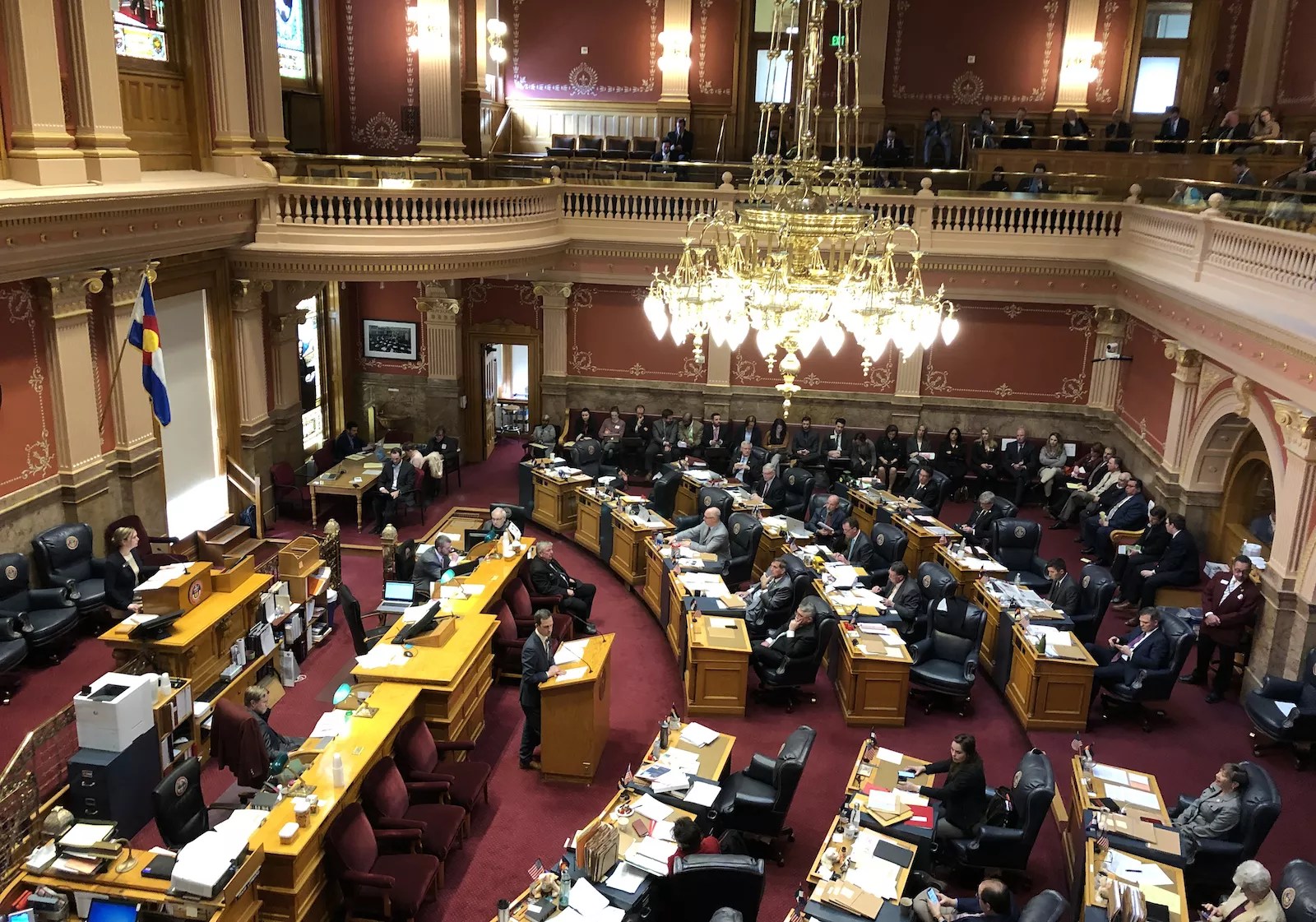
Chase Woodruff

Audio By Carbonatix
Following a series of conciliatory amendments offered by Democratic leadership, a sweeping proposal to overhaul Colorado oil and gas regulations has cleared a key hurdle in the Senate and appears on track to become law.
Today, March 13, lawmakers voted on party lines to approve Senate Bill 181, which would give local governments more control over drilling operations and direct state regulators to put greater emphasis on health and safety considerations. The bill is expected to easily pass the House, where Democrats hold a seventeen-seat majority, and be signed into law by Governor Jared Polis.
Its passage brings an end to several days of conflict on the Senate floor, marked by delay tactics from Republicans who objected to the speed with which Democrats have advanced the bill. After months spent meeting with interest groups and crafting the legislation behind closed doors, Democratic leadership announced SB 181 in a press conference at the Capitol less than two weeks ago.
“This bill does not solve every problem,” said Majority Leader Steve Fenberg, a Democrat from Boulder and the bill’s sponsor, on the Senate floor on Tuesday. “Nor does it by any means ease everyone’s concerns, whether from local governments’ perspective, from advocates or from industry, of course. But I think it is a very major step forward.”
The bill proposes the most substantial reforms to Colorado oil and gas law in almost seventy years. It seeks to ease years of rising tensions between drillers and the fast-growing Front Range communities in which they operate by giving local governments what many of them have long wanted – the power to restrict and regulate drilling activity that occurs within their borders. It also reforms the mission of the Colorado Oil and Gas Conservation Commission, the state agency that oversees drilling, requiring the commission to “regulate” oil and gas development rather than “foster” it, and alters the seven-member commission’s makeup to include more health and environmental experts.
The legislation has been bitterly opposed by the oil and gas lobby and the Republican minority at the Capitol. In an effort to delay consideration of SB 181, Republicans on Monday requested that a 2,000-page bill be read in full on the Senate floor, which could have taken days, preventing the chamber from conducting any other business. Democrats responded by using text-to-speech computer programs to read the legislation in rapid-fire gibberish – and Republicans sued, obtaining a temporary injunction prohibiting Senate leadership from using computers to read bills.
Lawmakers from both parties took to the Senate floor to debate SB 181 throughout the day on Tuesday, with discussion occasionally growing heated. Shortly before 9 p.m., after conferring with Senate Republicans and industry representatives during a long recess, Fenberg introduced a series of amendments to revise and clarify certain sections of the bill. For a brief time, after several days of tension, the mood on the Senate floor was downright cordial.
“Mr. Majority Leader, thank you for the last thirty minutes or so,” Senate Minority Leader Chris Holbert told Fenberg. “The past few days have been challenging here in the Senate, and I want to applaud the Majority Leader for the transparency, for the open dialogue that we’ve been able to share in the past half hour. I understand from industry that there are still concerns, but there has been progress.”
One amendment passed Tuesday night stipulates that oil and gas regulations passed by local governments must be “necessary and reasonable” to protect health, safety and the environment. Another creates an optional technical review process through which local governments could solicit “expertise” on alternative sites for proposed wells.
Industry groups had also criticized a section of the bill that empowered the director of the COGCC to put certain permits on hold while new rules are enacted, which Republicans said could amount to a full moratorium. An amendment passed Tuesday night requires the COGCC to identify the “objective criteria” by which certain permits will be put on hold within thirty days of the bill becoming law, subject to a public comment period.
Ahead of its final passage in the Senate, Fenberg conceded that the bill is “not perfect” and committed to working with both the industry and environmental and community groups to address an issue that has been a major battleground in state politics for more than a decade.
“We have a long road ahead of us, even after this bill passes, hopefully,” said Fenberg. “And you have my commitment to address any unintended consequences that come from this bill. I also want to give my word to families and to local elected officials that if this bill doesn’t address health and safety in the way that we hope it will – if we think there are holes – I will continue working on this policy to ensure it does that as well.”